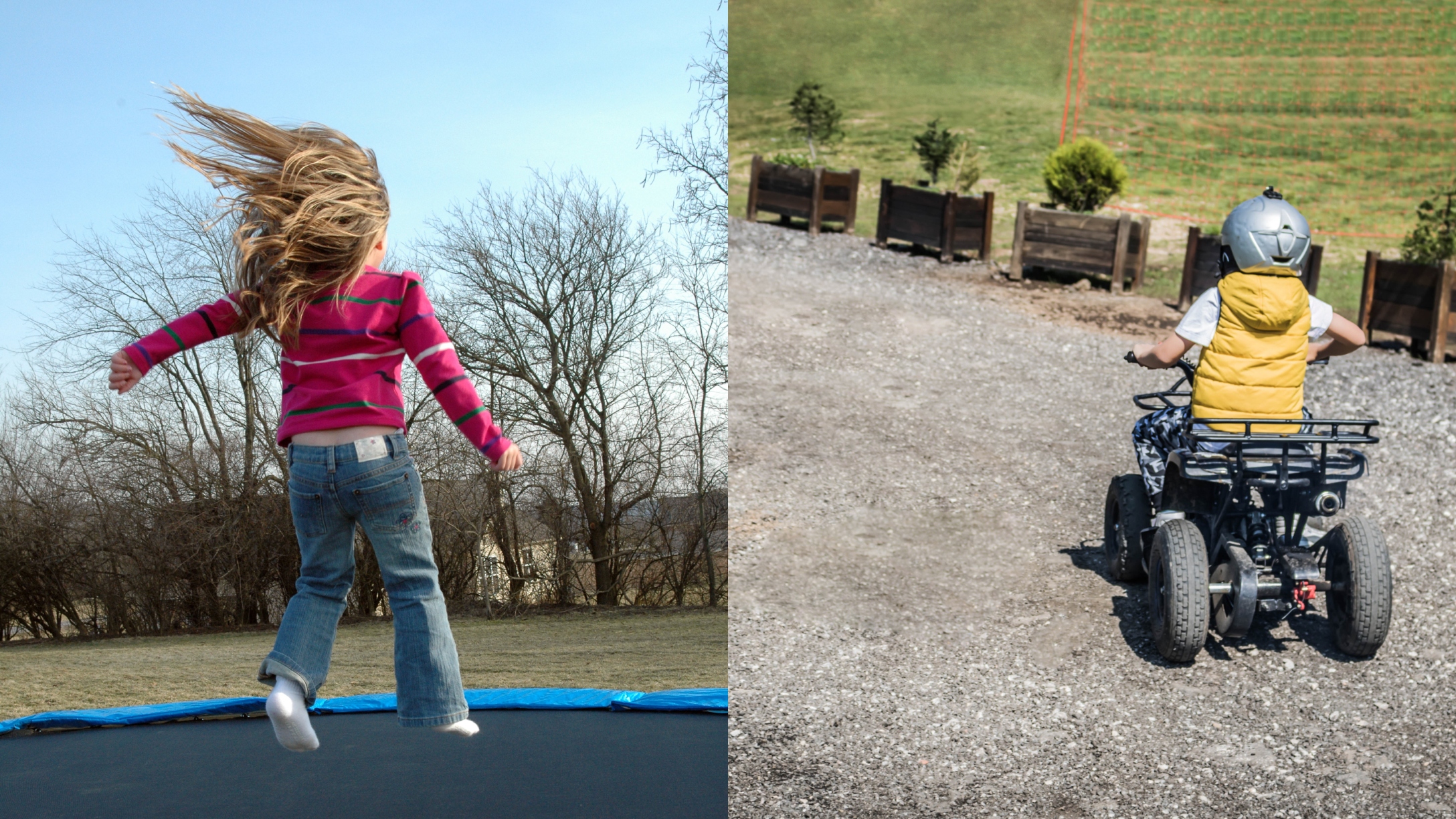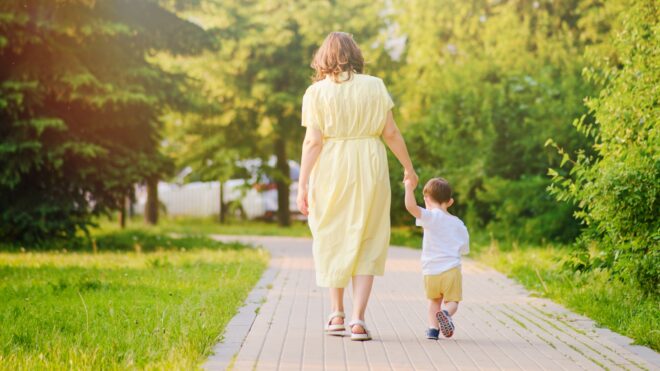
We often hear people without children wax poetic about everything they will and won't do as a parent one day. Things like not allowing screen time and never giving their child a pack of fruit snacks top the lists. Then they go on about how their kids will eat everything they cook and like it too. Plenty of experienced parents laugh behind their backs — or maybe in their faces — about these astute views of parenting from someone who hasn't been there. We know exactly what's going to happen if and when these wise childless folks eventually pop out a couple of kids.
Understandably, we may not want to take the expert advice of someone who doesn't have children, but what about advice from actual experts? There are many trusted sources for parents to turn to for advice on keeping their children safe. For a lot of us, the first stop is our pediatrician. Not only do they care for children day in and day out, but they also are often parents themselves and will tell you exactly what they would do for their own children.
This is the advice that we should trust. Today spoke to several pediatricians about the dangerous things they would never allow their children to do. Years of experience and seeing significant traumas and even deaths has led to some very definite hard nos.
First, let's look at safety in the car.
We often see and hear information about car seats, babies, and young children, but the experts urge parents to remember their older kids. Just because they have outgrown a booster doesn't necessarily mean they should be in the front seat.
"My kids will not ride in the front seat before the age of 13, which is the recommended age that kids can move to the front," Dr. Katie Lockwood, a primary care pediatrician at Children's Hospital of Philadelphia, told Today.
She explained there are too many dangers for a young person, including airbag injuries to the ribs, lungs, head, neck, and spine.
The Centers for Disease Control and Prevention reports that motor vehicle accidents are the top reason for injury and death of children. To prevent these tragedies, kids need proper restraints. And even though they may think they're too old to be in the back, kids don't need to move up to the front seat so quickly.
Trampolines may be fun, but they're not always safe.
Kids love jumping on trampolines, but some are too dangerous to risk. Dr. Ee Tay, a pediatric emergency medicine specialist at Hassenfeld Children's Hospital at NYU Langone won't let her kids play on most trampolines at home or at event spaces, Tay told Today. The risks for head injury and broken bones are just too high.
"It depends on the weight of the child, how hard they can bounce, how high they can jump, if there's another child next to them … It's just very unpredictable," she explained.
Dr. Brent Kaziny, medical director of emergency management at Texas Children's Hospital, told Today that there are safer ways to use trampolines so they don't have to be totally out of the question. In-ground trampolines and those with nets around them are better options than those without. He also recommends minimizing the number of kids jumping at once and ensuring they are at similar heights and weights while playing together.
No matter their age, some say there is no place for a kid on an ATV.
All-terrain vehicles are known for terrible accidents that cause serious injury and death. Tay said ATVs are absolutely a no for her kids.
"My kids will never, ever go on an ATV. … They are so dangerous," said Tay, adding that the all-terrain vehicles cause many preventable accidents among children. This applies to riding and driving ATVs, though most are built for just one person."
No license or training is required to operate an ATV. The vehicles come in many sizes, some of which are small and seem to be appropriate for smaller kids, but experts say that is misleading. "The child ends up being on something that's really not age appropriate … from a size and power perspective," according to Kaziny.
There should always be someone around when a kid is swimming.
Swimming poses risks for children and adults alike, and it is always a good idea to do it with others. Things can go wrong in the water quickly, and the outcome could be tragic if there is no one there to help or get help. Even if a child knows how to swim, they can drown.
"I teach my kids from a young age not to swim alone and that they should always have an adult who's watching them," Lockwood said, emphasizing that it needs to be a sober "water watcher."
Kaziny urges all homeowners with pools to put up safety gates or other restraints to keep children out when they aren't supposed to be there.
"It's shocking how quickly a kid can end up getting themselves in trouble if you're not really paying attention," he told Today.
Kids always need to have their helmets on.
Yes, it is true; most parents today did not wear helmets when they were kids. But, as they say, those were different times, and things have changed. We are more aware of the dangers today; kids need to protect their heads to prevent serious injury because they are more prone to head injuries.
"Kids have a disproportionately large head compared to their body, so they're more likely than adults to fall and hit their head," Lockwood explained.
Experts want kids in helmets on bikes, scooters, skates, or hoverboards. Kaziny said if there is a helmet made for the activity you are doing, you need to wear it. "I also try to model that good behavior by always wearing a helmet myself," Kaziny told Today.
The experts don't want their kids interacting with unfamiliar animals.
"One of the common types of injuries that we see is when the child gets right up in the animal's face then the child gets bitten on their face," Tay said.
Animals are unpredictable and can be highly protective of their space. Even though you may have a dog or cat at home, children must be careful and know that strange animals may not act like their pets. Kids should always ask to pet an animal, Kaziny recommended.
Tay added that an animal might bite if it is bothered while eating. No one should interrupt the meal. It is best to wait to pet them until they finish.
Knowledge of firearms and safety is crucial for kids and adults alike.
Lockwood explained that she always makes sure that she asks adults if there are firearms in the home and if they properly put them out of the reach of children.
"I would not let my kids go to someone's house without verifying if they own guns, and if they do that they're safely stored," she said.
According to Dr. Marc Auerbach, professor of pediatrics and emergency medicine at Yale School of Medicine, firearm injuries are increasing. He said parents need to have hard conversations with their kids, so they understand how dangerous firearms can be.
"Unfortunately we have seen a large number of both unintentional firearm injuries and in the older child or teenage population, related to suicide or homicide," he said.
As parents, our top concern is keeping our children safe. It may inconvenience us from time to time or we might think just this time won't hurt. But truthfully, just one time could be the difference between life and death. Trust the experts. They have been there and want all kids to be safe and well.




